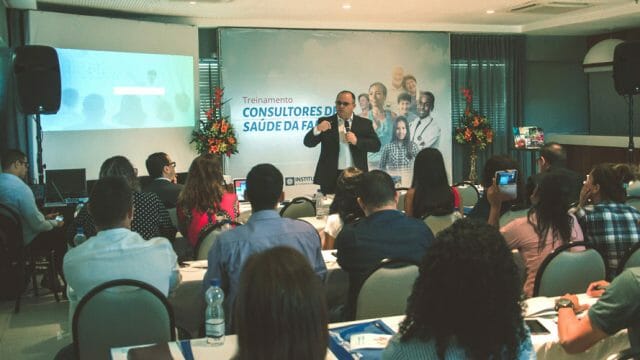In both rural and inner-city communities, AdventHealth is helping to feed those in need.

The AdventHealth Medical Group (AHMG) Rural Health Clinic in Manchester, Kentucky, United States, sits in a region with high food insecurity rates—some of the highest in the country, according to a Feeding America report. That doesn’t stop the clinic from helping patients feel whole by caring for their health and filling their empty stomachs.
“Food impacts all parameters,” said Rajiv Naval-Srinivas, AHMG physician specializing in geriatric medicine and infectious diseases. “If I arrange for someone to get some food, they will pay less attention to where they’re going to get their next meal and more attention to taking care of themselves.”
Sheila Asher, the Rural Health Clinic’s office manager, knew that providers like Naval-Srinivas were arranging meals for their patients, as, one to two times a day, they were hearing about cases of patients’ ongoing hunger at home. That’s when the team got the idea to set up an onsite food pantry that they could quietly and discreetly send patients to. No questions asked.
“Our providers kept calling me about picking up food for patients,” Asher said. “We would have to contact patients to come back or take it to their home ourselves. The pantry eliminates the need of having to travel on long gravel roads to get to the patients or having to ask them to arrange transportation back.”
Today, that food pantry is not the only way team members at the Rural Health Clinic and nearby AdventHealth Manchester are helping their neighbors in need. For the Thanksgiving holiday, they donate cases of canned foods and boxed mashed potatoes —items that are simple to prepare in case of community members without an oven or a stove. In January 2019, they opened a warming shelter to give people a refuge from frigid temperatures, and in February they hosted a week of free food for the individuals who used the facility. Every week, the hospital’s chaplain and other volunteers serve food at God’s Closet, a ministry of the local Baptist church.
Each one of these acts of service is aimed at addressing food insecurity, a social determinant of health (SDOH), defined as one of the “conditions in the places where people live, learn, work, and play [that] affect a wide range of health risks and outcomes,” according to the Centers for Disease Control and Prevention. AdventHealth is focused on addressing food insecurity and other needs, such as behavioral health, access to care, and workforce/economic development across the communities it serves. Below are some examples of how they tackle the former.
Second Helpings Program
In the Orlando, Florida, area, the Second Helpings program brings together AdventHealth hospital campuses with the non-profit organization Second Harvest Food Bank to donate unused food items to areas of high need.
Food Is Health Program
For Food Is Health, AdventHealth Tampa in Florida partners with local organizations to address the nutritional needs of individuals in communities designated as “food deserts.” The program provides health and lifestyle educational opportunities, biometric screenings, and improved access to healthy produce and dry goods.
3 Os Initiative
In Calhoun, Georgia, AdventHealth Gordon team members are encouraged to donate money to the Seventh-day Adventist Church of Calhoun’s food pantry, and to remember the “3 Os”: If you observe a patient with a food barrier, own it and put in an order via a food referral form.
Back in Manchester, caregivers say they feel a special calling to help the community.
“This is the kind of stuff we do all the time because there’s a need here,” Asher said. “We don’t do it for the recognition, but we will take all the help we can get.”
The original version of this story was posted on the AdventHealth news site.








